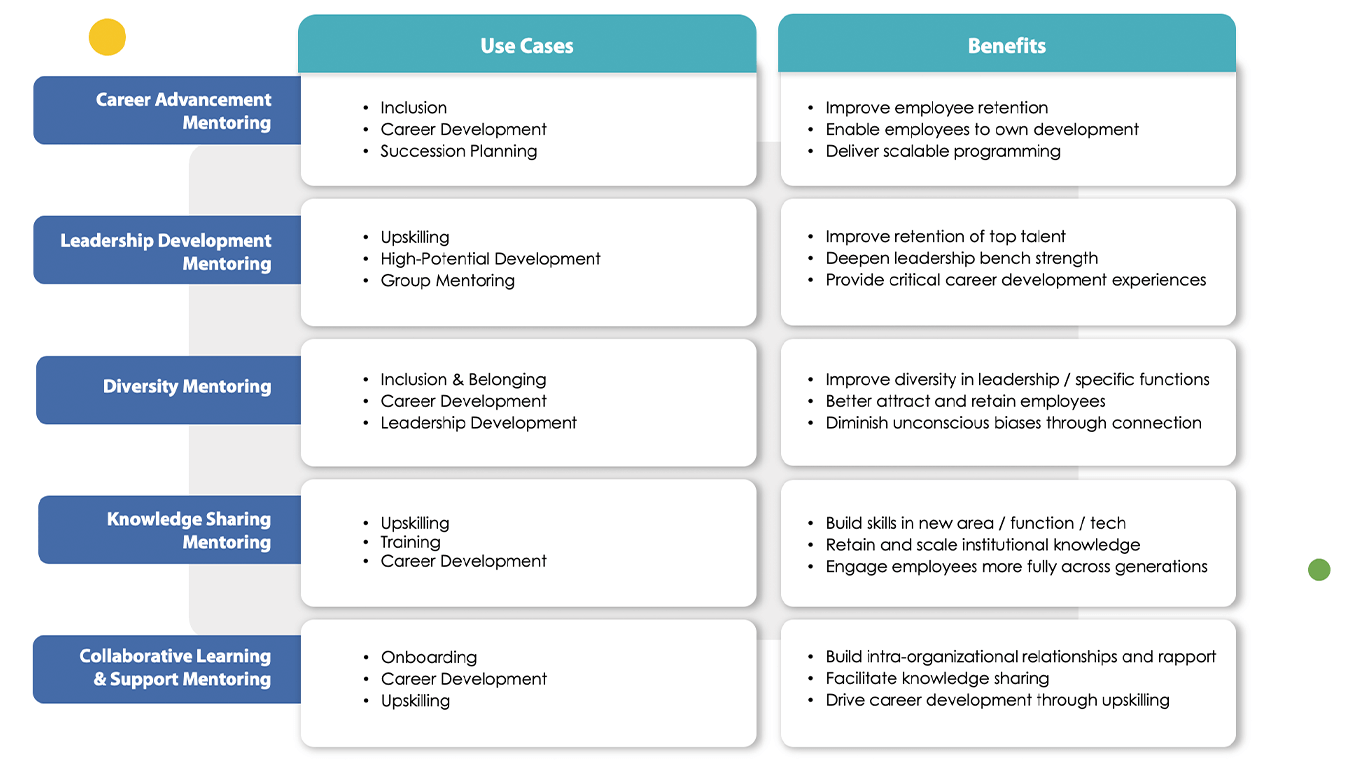Career development activities enhance leadership skills by promoting self-awareness and expanding competence. They foster the growth of strategic thinking and interpersonal communication required for effective leadership.
Career development activities are vital for professionals aspiring to improve their leadership capabilities. Engaging in these processes allows individuals to assess their strengths and weaknesses, setting the stage for targeted improvement. Leaders can identify necessary core skills, such as decision-making and team management, and work on refining them through various programs.
These activities might include workshops, mentoring, or on-the-job training, all of which serve to cultivate the broad skill set needed for successful leadership. As professionals progress in their careers, ongoing development ensures they stay updated with the latest industry trends and leadership methodologies. This commitment to growth is not only beneficial for individual career trajectories but also enhances organizational performance, as well-trained leaders are better equipped to guide teams effectively and adapt to changing business environments.
The Landscape Of Career Development
Understanding The Landscape of Career Development is crucial for modern professionals. The focus is no longer just on acquiring a job. Rather, it’s about nurturing a pathway that yields continuous advancement and leadership refinement. This pathway hinges on key development activities that shape aspiring leaders, as will be discussed below.
Emergence Of Personal Growth In The Workplace
Personal growth has taken center stage in workplace culture. Companies now recognize that employee fulfillment leads to better performance and innovation. Leaders emerge when they understand and leverage their strengths, unlocking their potential along the way.
- Self-awareness training
- Mentorship programs
- Wellness initiatives
- Goal-setting workshops
Continuous Learning As A Norm
In an ever-evolving market, continuous learning stands as a core component of career development. It’s essential for adapting to new challenges and technologies. Leaders who commit to lifelong learning set a powerful example and drive their teams to achieve greatness.
| Learning Method | Benefits |
|---|---|
| Online courses | Updated skills |
| Workshops | Hands-on experience |
| Conferences | Networking opportunities |
Leadership Qualities And Career Progression
Leadership Qualities and Career Progression play a critical role in shaping a successful professional journey. Career development activities offer a ladder to climb the heights of leadership. They equip individuals with essential skills and experiences. These translate into powerful leadership traits over time.
Core Competencies For Emerging Leaders
Emerging leaders must possess a set of core competencies. These set them apart and prepare them for advanced responsibilities. Consider the following table that outlines key skills for emerging leaders.
| Competency | Why It Matters |
|---|---|
| Communication | Effective exchange of ideas |
| Decision Making | Choosing the best course of action |
| Team Building | Cultivating strong teams |
| Problem-Solving | Finding solutions to challenges |
| Innovation | Encouraging creative thinking |
These competencies form the foundation for effective leadership. Career development programs often include training in these areas. This helps build a robust skill set.
The Influence Of Experience On Leadership Styles
Experience significantly affects leadership styles. As leaders navigate through various roles, their approach evolves. This list highlights the influence of experiences on adopting different leadership styles:
- Challenges teach resilience and adaptability.
- Successes encourage confidence and influence.
- Feedback fosters introspection and growth.
- Team dynamics nurture empathy and communication skills.
- Organizational changes compel innovation and flexibility.
Through career development activities, leaders face varied situations. These experiences shape their unique leadership style. This helps in adapting to new challenges and guiding teams effectively.
Assessing Impactful Career Development Activities
Identifying which career development strategies kindle leadership growth is key to crafting an effective professional enhancement plan. From mentoring to workshops, certain activities stand out as highly influential in shaping leadership qualities. Below, dive into how these initiatives can foster leadership skills.
Mentorship Programs And Their Effect
Mentorship programs bridge the gap between knowledge and experience. They pair budding leaders with seasoned professionals. This allows for hands-on learning and personalized advice. Key benefits include:
- Improved problem-solving skills through real-world scenarios
- Development of strong communication abilities
- A platform to build valuable networks
Participants often mirror their mentors’ success, thus accelerating their leadership journey.
Value Of Leadership Workshops
Leadership workshops focus on specific skills to dominate in a leadership role. Interactive sessions aim at refining abilities, such as:
| Skill Area | Workshop Focus |
|---|---|
| Decision Making | Critical thinking and strategic choice exercises |
| Communication | Public speaking and active listening techniques |
| Team Management | Conflict resolution and motivational strategies |
Workshops produce measurable improvements in leadership competencies. They create a setting where aspiring leaders can practice and refine their skills in a supportive environment.
The Role Of Feedback In Shaping Leaders
Feedback plays a critical role in leadership development. It helps emerging leaders understand their strengths and areas for growth. Through feedback, leaders can gauge how their actions affect their team and organization. Leaders need clear, insightful feedback to refine their skills and become more effective.
Constructive Criticism: A Tool For Improvement
Constructive criticism is a powerful tool in developing leadership skills. It offers specific, actionable insights that leaders can use to improve their performance. Delivered with care and respect, this type of feedback nurtures growth and development. Effective leaders welcome constructive criticism, knowing it paves the way for continuous improvement.
360-degree Feedback Mechanism
The 360-degree feedback mechanism collects input from all levels around a leader. It includes peers, subordinates, and superiors. This comprehensive approach provides a well-rounded view of a leader’s impact. It can uncover hidden strengths and weaknesses. As a result, leaders gain a deeper understanding of their influence on others.
- Encourages self-awareness by showing how others perceive the leader
- Identifies gaps between a leader’s self-assessment and external perceptions
- Creates opportunities for personalized development plans
Leaders who actively engage in career development activities and embrace feedback set themselves on a trajectory for success. They become more adept at navigating complex situations and inspiring their teams. Every piece of feedback is a stepping stone on the path to outstanding leadership.
Networking: Expanding Influence And Opportunities
Networking shapes leaders in powerful ways. It’s key to career growth. Leaders use it to find new chances and build influence. Strong networks lead to more knowledge, support, and power. This unlocks leadership paths and sparks growth.
Strategic Relationships And Leadership Enhancement
Building strategic relationships is a smart move for leaders. These connections are like bridges. They link leaders to ideas, people, and industries. Such ties can:
- Boost skill sets.
- Provide fresh perspectives.
- Offer mentorship opportunities.
Strategic relationships mean learning from peers. They turn contacts into coaches.
Networking And Thought Leadership
Good networks can spark thought leadership. They spread innovative ideas. Networking helps leaders share and grow their thoughts. It can:
- Elevate their voice in their field.
- Encourage debates and discussions.
- Influence industry trends.
Leaders with large networks often lead the pack. They set the stage for new strategies. They guide others by the strengths of their ideas.
Case Studies: Success Stories And Lessons Learned
Career development activities shape leaders. These activities involve training, education, and real-world experience. They guide individuals in honing skills for leadership roles. Learning from successful leaders’ journeys provides insights. This leads to a deeper understanding of how such activities foster leadership qualities.
Analyzing The Growth Of Notable Leaders
Let’s delve into the stories of influential leaders. We will explore their growth through career development activities.
- CEO Transformation Examples: From humble beginnings to top positions, the progression is clear.
- Innovative Entrepreneurs: They leveraged mentorship and networking to pioneer change.
- Trailblazers: They used continuous learning to break new ground in their fields.
These examples reveal pathways from potential to achievement. Leaders repeatedly credit mentorship, strategic risk-taking, and ongoing training for their success.
Common Themes In Leadership Development
Across various success stories, certain themes emerge. They underscore the significance of career development activities in shaping leaders.
| Theme | Description | Impact on Leadership |
|---|---|---|
| Lifelong Learning | Commitment to acquiring new knowledge. | Fosters adaptability and growth. |
| Mentorship | Guidance from experienced leaders. | Enhances decision-making and vision. |
| Challenging Experiences | Tackling complex problems head-on. | Builds resilience and problem-solving skills. |
Analyzing these common themes helps us understand leadership development. Their repeated appearance underscores their importance. They act as building blocks for successful leadership.
Challenges In Leadership Development
Leadership development isn’t a simple path. It combines intense learning with real-world practice. Leaders face numerous challenges, from personal hurdles to aligning with the broader vision of their organizations. Understanding these challenges is key to shaping effective leaders for tomorrow.
Overcoming Obstacles In Career Advancement
Leaders often face roadblocks on their journey to the top. These can be external, like a lack of opportunities, or internal, such as a fear of failure. A successful leader learns to navigate these challenges. Below are techniques to help in overcoming these obstacles:
- Setting clear goals to create a roadmap for success.
- Seeking mentorship for guidance and perspective.
- Embracing continuous learning to stay ahead.
- Building a supportive network for opportunities and advice.
Balancing Personal Growth With Organizational Goals
Personal ambitions and company objectives must align for a leader to thrive. The balance is delicate and critical. Leaders must cultivate personal skills that propel both their careers and the organization’s mission forward. The following points highlight how to maintain this balance:
| Personal Growth | Organizational Goals |
|---|---|
| Developing leadership skills | Meeting company objectives |
| Expanding knowledge and expertise | Fostering innovation and progress |
| Building professional networks | Enhancing team collaboration |
Strategic planning and clear communication are tools for synchronizing these aspects. Both ensure that personal development efforts and organizational needs are met hand in hand.

Credit: professional.dce.harvard.edu
Fostering A Culture Of Leadership Development
Fostering a Culture of Leadership Development transforms not only individuals but entire companies. When businesses embrace growth, they thrive. Employees climb up their career ladders. And everyone shares in the success. Leadership skills are not just for the top executives. They are for everyone. From fresh hires to seasoned managers. Developing these skills is essential. But how do you build this culture? Let’s dive in.
Organizational Policies To Encourage Growth
Organizations can build a solid foundation by setting the right policies. These policies must encourage every employee to grow. Clear incentives and pathways for advancement are vital. They make sure that personal development aligns with company goals. When staff understand how they can grow, they are more likely to lead.
- Mentorship programs: Pairing experienced leaders with newcomers
- Continuous learning: Access to courses, workshops, and seminars
- Recognition systems: Rewards for leadership behaviors
- Flexible roles: Opportunities to lead projects or teams
Creating Sustainable Development Plans
A one-off training session isn’t enough. Growth needs to be ongoing. Individual development plans (IDPs) are effective tools here. They align career goals with company objectives. These plans are living documents. They evolve as employees and businesses do.
| Plan Component | Benefits |
|---|---|
| Goal Setting | Guides the development journey |
| Progress Review | Keeps development on track |
| Feedback Mechanism | Facilitates continuous improvement |
Plans should be personalized. Each employee has unique strengths and career aspirations. Regular check-ins ensure that the plans are working. They also keep employees engaged. Leadership development isn’t a box to check. It’s a path to follow, and with the right steps, a culture of leadership will flourish.
Future Directions In Career Development For Leaders
The landscape of leadership constantly evolves. Career development activities play a critical role in shaping leaders adept at navigating these changes. Emphasizing innovative training and adjusting to dynamic workplaces fosters adept leaders, ready for future challenges.
Innovation In Leadership Training
Recent years have spotlighted the need for creativity in developing leaders. Interactive simulations and real-time feedback mechanisms are on the rise. These methods prepare leaders for quick decision-making and problem-solving. Practices such as gamified learning and virtual reality experiences stand out. They simulate complex scenarios for leaders to navigate, offering compelling learning environments.
- Customized learning paths tailored to individual strengths
- Peer-to-peer coaching and mentoring for collaborative growth
- Data analytics to fine-tune leadership competencies
Adapting To Changing Workplace Dynamics
Today’s workplaces are ever-changing. Flexibility and adaptability are paramount. Leaders must excel in varied environments. They face remote teams, diverse workforces, and hybrid work models.
- Embrace technology integration to manage distributed teams
- Promote an inclusive culture that values every team member
- Develop emotional intelligence to support employee well-being
Career development programs must therefore evolve. They should incorporate strategies for cross-cultural communication and digital collaboration. Continuous learning opportunities are vital. Leaders must stay abreast of trends and innovations that affect their industry and team dynamics.

Credit: chronus.com

Credit: mckinleyvillecsd.ca.gov
Frequently Asked Questions
How Does Career Development Affect Leadership?
Career development enhances leadership by building skills, confidence, and strategic thinking. It fosters adaptability and innovation, crucial for effective leadership.
Why Are Career Development Activities Important?
Career development activities boost skills, enhance job performance, and open advancement opportunities. They ensure long-term employability and job satisfaction, critical in a dynamic job market.
Why Is Leadership Important In Career Development?
Leadership skills drive career progression by enhancing teamwork, decision-making, and problem-solving abilities. They foster respect and open advancement opportunities, positioning professionals for success.
What Is The Impact Of Career Development In An Organization?
Career development boosts employee engagement and retention. It fosters skill enhancement and prepares employees for future roles, benefiting organizational growth and adaptability.
Conclusion
Embracing career development is a game-changer for aspiring leaders. This journey polishes skills and boosts confidence, essential for effective leadership. By investing in their growth, individuals signal readiness to take on greater challenges. It’s clear – career growth activities aren’t just beneficial; they’re pivotal for leadership evolution.
Let’s cultivate these opportunities for a brighter leadership landscape.

I’m based in the USA, Canada, Australia, and the UK—four vibrant countries with rich educational landscapes and diverse news ecosystems.
Feel free to adjust and personalize this introduction to reflect your unique voice and experiences. Happy writing! 📝✨

